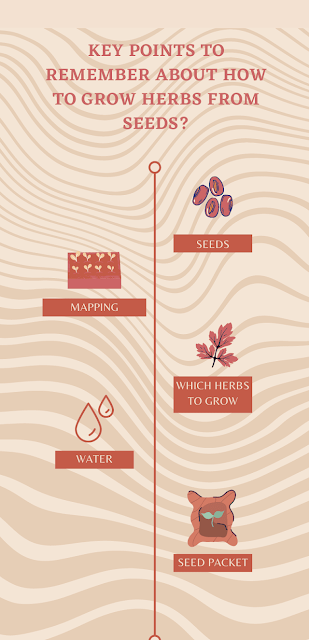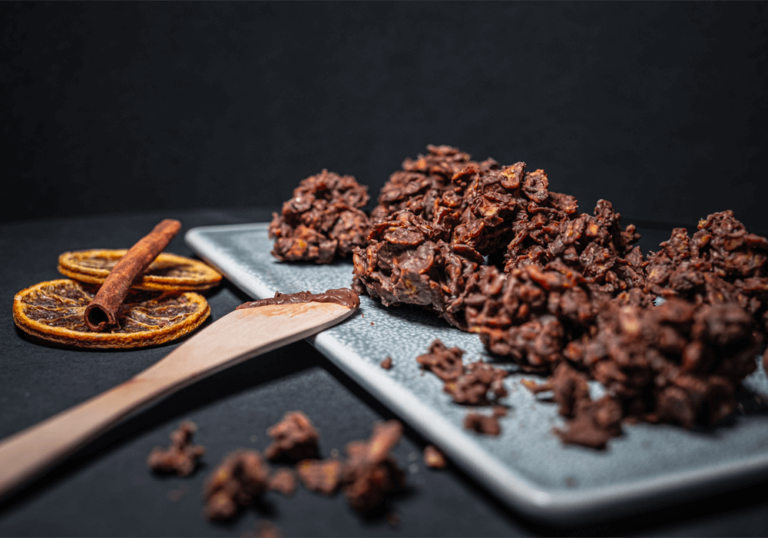As we know, growing organic vegetables in our gardens and homes are a healthy alternative to buying produce from shops that have been subjected to many chemicals in the growing process.
When we prepare meals, one of the key ingredients is flavorings, and these come in many forms, but essentially herbs make up a large proportion of these flavorings. So, how to grow herbs from seeds.
When growing organic vegetables, it follows that we should also consider growing our own organic herbs. Not only do herbs add flavor to our food, but by growing our own organic herbs, we have yet another source of natural nutrients from our food.
So adding organic herbs to our garden provides us with fresh, chemical-free herbs for use at any time.
You will be surprised by the full flavor of your own organically grown herbs as opposed to those you buy in a shop that has been chemically altered during the growing cycle.
Let’s know some major points about herbs
Growing herbs in the herb garden as an early American pioneer was a method of producing what their major source of food seasoning was. Homegrown herbs were also used as medicinal herbs for treating and curing illnesses, as insect repellents in and out of their homes, assisting in preserving homegrown foods before refrigeration was devised, and in the dyeing of fabrics.
Growing herbs in home gardens declined as our society progressed because a wide range of culinary dried herbs became available in stores. With the more recent rise in the popularity of foods worldwide, gardeners have become more aware that growing herbs locally in a personal herb garden may be their only source of some of the ethnic food flavors being sought.
They have also realized that freshly grown herbs have a more distinctive flavor and aroma than dried or fresh herbs purchased at a store. Many gardeners are now growing at least a few fresh herbs to be used, fresh, dried, or frozen herbs.
Growing indoor herbs for herbal remedies, growing fresh basil for pesto, lavender for the aroma, chamomile for herbal tea, or simply enjoying the process is a healthy gardening experience. Growing herbs and medicinal plants in your personal herb garden can be a healthy and enjoyable experience for everyone.
Key points to remember when grow herbs from seeds?
1: Seeds
You must make sure that your seeds are organic and have not been treated in any way by chemical processes. They must be chemical and pesticide-free.
2: Mapping
Like your garden, you should map out your garden using some graph paper. Why is this important? It is important because many herbs and plants actually grow better and provide more products if they are planted with certain others.
There is also another added benefit which is commonly known as “companion planting.” This also helps keep pests away from your produce. This is the best way for growing herbs in pots for beginners.
3: Which herbs To Grow?
There are so many herbs you can choose from it would be impossible to list them all here. But common herbs such as oregano, chives, parsley, and even catnip are available.
Like most seeds, you will find the packets themselves will provide you with plenty of information on when to plant and how to plant them for the best results.
4: Water
Just like your vegetables, organically grown herbs will require plenty of irrigation. But always be careful not to under or over water them. Again the packets that the seeds come in will give you this information.
A good investment is a moisture soil kit. These little kits can give you a good indication of how much moisture is in the soil.
5: Seed Packets
While mentioning seed packets, it is always helpful if you retain the packets. The best way I find is once empty, cut the packet in half so that you have the front with the picture and the back with the instructions in two separate pieces.
You can then use the picture half in the garden so that you know what you have planted there, and the back half with the instructions can be kept in a greenhouse or shed.
You never know when you might need to reference something you are growing. Do not forget to use your organic compost and mulch. Hopefully, you will be making your own, so a little of this will greatly help growth and good soil maintenance.
Some key things to know:
Common herbs to grow indoors are basil, dill, fennel, marjoram, oregano, parsley, sage, summer savory, or thyme.Perennial Herbs such as Rosemary, Tarragon, and Mints are more difficult to grow indoors. A challenge with these herbs is moving them from the garden into pots without destroying the tender root structure.Providing enough supplemental light for sun-loving herbs like Rosemary, Tarragon, and Mints is another part of the challenge. Additional light of any kind is a help, but supplemental light of the correct color spectrum and intensity is a must.
What do I do with all those herbs?
If you have begun with indoor herbs or are just in the stages of thinking, you should question crops up time and time again.
Most people will use their herbs in a dry form. To get the best from the herbs, you should always try to harvest them at the start of the day.
You only need to use a sharp knife or a pair of garden scissors to harvest your herbs and make sure that the stems are quite long.
1: Washing Your Herbs
Wash the herbs, but remember these are herbs and not some steel fork. So be gentle with them, and once washed, put them on a piece of kitchen towel or a clean cloth.
The herbs need to dry out once washed, so the towel needs to be absorbent so that all the water can drain from your herbs.
2: Drying Your Herbs
Once all the excess water has been removed, you need to tie them together in bundles with a string piece. Then hang the small bundles up in an area out of the way but, if possible, moisture-free. I find that an airing cupboard is a great place as it’s always slightly warm and, of course, dry.
If you are hanging them near a window as a skyplanter that has direct sunlight, this can also be a good place. Just remember, however, that the sunlight will take some of the natural colors from the herbs.
3: Making Your Herbs Ready For Use
Once your herbs have dried out completely, you can crush them and put them in small glass or stone jars.
I prefer not to use plastic as I always feel this affects the flavor of the herbs. Your herbs, once dried, will last for at least nine to twelve months.
4: Freezing Your Herbs
As an alternative, you can also freeze your herbs. To do this, simply harvest and wash as above, but you need to make 100 percent certain there is no excess moisture when drying.
So keep turning them on the paper towel until completely dry. This is very important for the freezing process. To get the best flavor from your herbs when frozen, keep the flowers and leaves on the stems.
Once they are dry, you can put them into freezer bags and place them in the freezer. One point to note here is to put a label or mark the freezer bag with the date. Herbs that have been frozen would be best used within six months of freezing them as this is when they have their best flavor.
To use the frozen herbs from the freezer, just flake off the herbs between the thumb and forefinger and then return all the unused herbs to the freezer.
A few more things to remember about how to grow herbs from seeds!
- Herbs should grown in pots with proper drainage. Let the soil in the container dry out at least 1/2 inch below the surface before watering.
- Do not let the plants wilt between watering, but don’t let the soil become soggy, either. Root Rot is a direct result of continuously wet soil and is a common problem for those who are winter growing herbs indoors.
- Fertilize your indoor herbs sparingly with a mild solution of soluble fertilizer.
- One teaspoon of all-purpose soluble fertilizer per gallon of water is an adequate mix. Water made from melted snow is a treat for your herbs!
Scoop up clean snow in a well-rinsed bucket and place it inside until it melts to room temperature. Melted snow is the closest thing to rainwater you will find in those cold and dreary winter months!
Bottom Line!
There are several that use for medical treatments, such as basil, mint, and others. Therefore, it would be better to grow indoor herbs. There are various beginners who want to start their own herbal garden. But they do not have any idea how to start it.
Therefore, we have provided all the key information about how to grow herbs from seeds. This will help with growing herbs in pots for beginners. Follow all the necessary steps. And try to involve another person who is also fond of growing indoor herbs and vegetables.
If you are enabled to find such a person, then you can comment your queries in the given below section. We will always be ready to help you solve your query. Our main purpose is to make your garden beautiful and help you eat healthy food.
So, without wasting your time more, let’s start growing indoor herbs organically. Keep doing your best to make yourself healthy and keep inspiring others to go organically.


